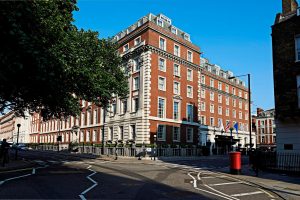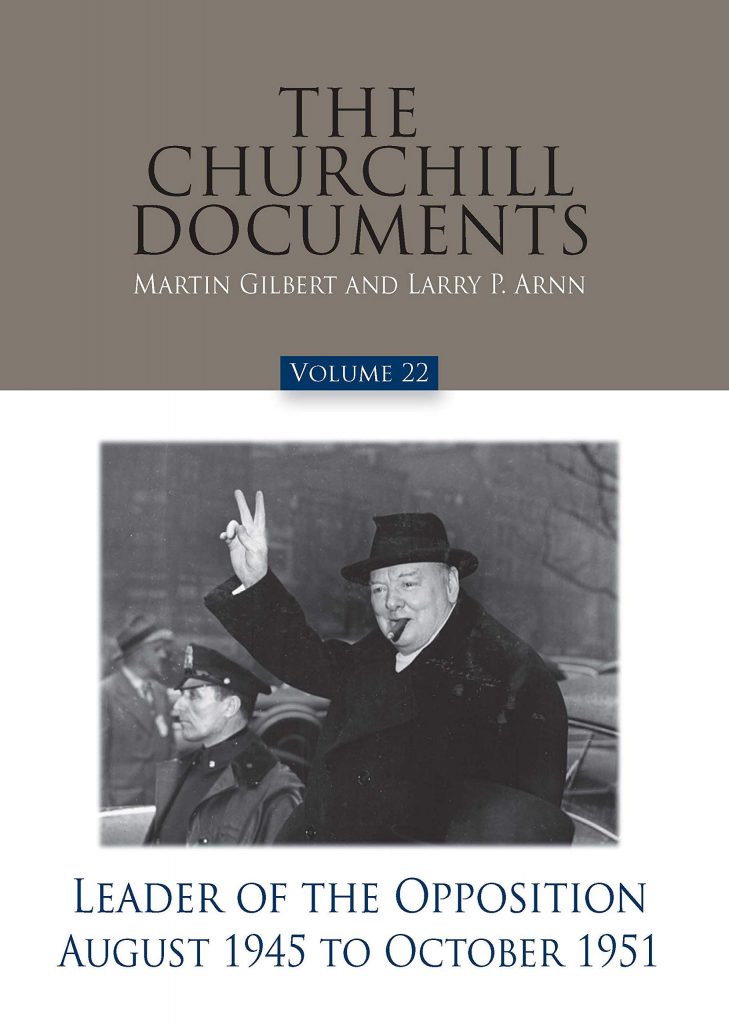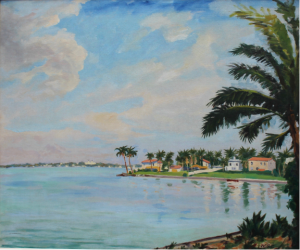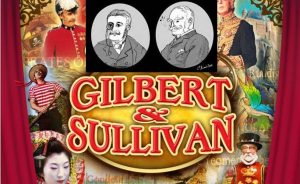
Bulletin #139 – Jan 2020
When the Lion Still Roared

January 4, 2020
Review by DAVID REYNOLDS
Martin Gilbert and Larry P. Arnn, eds., The Churchill Documents, volume 22, Leader of the Opposition, August 1945 to October 1951, Hillsdale College Press, 2019, 2328 pages, $60. ISBN 978–0916308407
With hindsight, the years 1945–51 seem like an interlude between Winston Churchill’s two premierships, while Clement Attlee and the Labour party held power. But Churchill had a remarkable capacity for making history out of office, as well as in office. What might be termed his second wilderness years are a case in point—as this latest volume of documents vividly shows.
Far from being the “anti-climax” Churchill initially dreaded, he used the time to prodigious effect. Aided by his “Syndicate” of assistants and financed in style by his publishers, he completed five of the eventual six volumes of war memoirs. We can read his progress reports to Clementine, his queries about delicate issues such as the Dieppe Raid or the bombing of Dresden, his unconcealed pride when telling his King that 250,000 copies of Their Finest Hour had been sold in a single day, and his regular complaints about the workload: “Volume IV is a worse tyrant than Attlee.”
During this same period, Churchill delivered 266 speeches, including 100 in the House of Commons—usually substantial works of intellect and oratory, requiring hours of assiduous drafting and re-redrafting. Some of these were what we might consider party pieces—castigating the “Socialists” (as he always called them) for bringing the country so low, and giving as good as he got in heated Commons exchanges with Labour left-wingers. Caught out once about statistics on Tory plans for house building, he retorted “Give me the power and I will give you the figures”—a neat twist to his 1941 bon mot about Lend-Lease. Amid the political barbs, there are also pearls of enduring wisdom, such as his warning against those who believe that “if an untruth is told often enough and widely enough it becomes as good as the truth.”

2024 International Churchill Conference
Many speeches were major statements of policy, especially on foreign affairs. Indeed, this volume contains some of the most important addresses Churchill ever delivered, such as those at Fulton about relations with the Soviet Union and the United States (March 1946), at Zurich about the existential imperative for Europe of Franco-German rapprochement (September 1946), and in New York concerning “The Communist Menace” (March 1949). It is striking that between 1945 and 1951 Churchill invented (or at least popularized) three terms that are still staples of our diplomatic vocabulary: Iron Curtain, Special Relationship, and Summit.
All in all, not bad for a man by then in his seventies. One recalls the comment of his devoted wife to her exhausted husband on the morning the 1945 election results were declared. Clementine suggested that the defeat “may well be a blessing in disguise”—to which he grunted, “At the moment it seems quite effectively disguised.” Yet after a few weeks of resting and painting on Lake Como, he echoed those words back to her. Clemmie was right. Continuing in office without a break would surely have destroyed Winston’s health, as it did for Attlee and others in his government who had also previously served in Churchill’s wartime coalition—indeed killing Ernest Bevin, one of the few “Socialists” for whom Churchill retained a genuine respect.
If he had won in 1945, Churchill would not have had the time to write himself into history so emphatically. And he would have been saddled with invidious choices on issues such as India, Palestine, and Persian oil. After July 1945 he could speak out prophetically without being trammelled by governmental office and without having to work out, for instance, exactly what “United Europe” meant for British foreign policy. What is more, life in the wilderness this time was much more agreeable than in the 1930s—now he was lauded as an international celebrity and free from perennial worry about paying the bills. Even though he was never immune from periodic notes from his long-suffering Clemmie, such as “Will you be very kind and if you go into your room and find it too hot, will you remember to click off both thermostats.”
This volume maintains the high standards of its predecessors, with ample biographical footnotes to identify Churchill’s interlocutors, a detailed index, and a helpful chronology of Churchill’s speeches and travels (more than 50,000 miles—half the distance of his epic odysseys of wartime).
Yet one might stop and ask why Winston Churchill needed to be so busy. Had not he achieved more than enough as war leader in 1945? Could he not rest on his laurels? Most statesmen write their memoirs in retirement, when they have laid down the burdens of office, rather than amid the continued hurly-burly of political life. Churchill, however, did all this writing and speaking while also serving as Leader of the Opposition and gearing up for elections that eventually came in February 1950 and, victoriously, in October 1951.
In his thoughtful editorial introduction, Larry Arnn suggests that Churchill came to view his defeat in the 1945 election with “detachment.” I incline to a different view. When researching my book about how Churchill wrote his war memoirs, In Command of History (2004)—turning over page after page of his papers in the days before they were digitized—I was suddenly struck by a chronology prepared by his staff in late 1950 while working on volume six of the memoirs. Against the entry for the General Election of July 1945, Churchill had scrawled, “I am kicked out.” For me, that was a lightbulb moment—illuminating a vast expanse of his political life.
Why was Churchill still so bitter, more than five years after the election? It took me back to his lament during the 1945 campaign: “I have no message for them now.” The man who had been able to give the Lion’s Roar in 1940 apparently felt he had lost touch with the British people. And I also recalled that he had never been elected to the premiership in May 1940, gaining that position only because he held his nerve in the Tory power struggle after the Norway debacle that toppled Neville Chamberlain. When in 1945, after five years of toil and sweat as wartime Prime Minister, Churchill offered himself to the people, they delivered not merely a defeat but a humiliation—the biggest Tory disaster since the Liberal landslide of 1906 and, before that, the Reform Act election of 1832. Little wonder that 1945 rankled.
To me, it made sense that he wanted to carry on in politics—to secure belatedly the nation’s endorsement. After some recuperation (and once assured that his perpetual heir apparent Anthony Eden would handle routine Commons business) Churchill embarked in earnest in 1946 on his double act: memoir-writer and Leader of the Opposition. “Winston is in very good fettle,” Brendan Bracken reported in October, “and is determined to lead the Tory Party until he becomes Prime Minister on earth or Minister of Defence in Heaven.”
Was it just a matter, as Churchill sometimes said, of staying in the pub till closing time—lest he get bored? Of course, that was a factor: like most world leaders, Winston loved the limelight. But he was also convinced that he still had business to accomplish. He never reconciled himself to the international as well as the domestic aspect of 1945, to the way that the “trinity of cooperation” formed by the Big Three had fallen apart and World War had led to Cold War. Though often accused by Labour left-wingers of being a “warmonger,” Churchill saw himself as a man of peace, a man who still had a mission.
His essential argument, evident in the last months of the war, was unveiled to the world at Fulton. By maintaining its special relationship with the United States, Great Britain could achieve a position of strength from which to reach a “settlement” with the Soviets—one that made them withdraw from Poland and Czechoslovakia while acknowledging their position in areas agreed during the war, such as the Balkans. “I do not hold that we should rearm in order to fight,” he declared in an election speech in 1951. “I hold that we should rearm in order to parley.”
It is also striking that he retained the bifurcated view of Stalin that he had formed in wartime, which I explored in a recent book with Vladimir Pechatnov, The Kremlin Letters: Stalin’s Wartime Correspondence with Churchill and Roosevelt (2018). This was the notion of “two Stalins”: the man himself, “personally cordial” to Churchill; and “Stalin in council, a grim thing behind him.” As he remarked to a friend in January 1944, “If only Stalin and I could meet once a week, there would be no trouble at all. We get on like a house on fire.” The belief that the Soviet leader was beholden to anyone in Moscow runs against everything we now know about Stalinist Russia, but Churchill seems to have clung to it throughout the post-war years. This volume includes occasional blasts at Stalin himself, but most of the time Churchill lays blame for the Cold War on “the 14 Men in the Kremlin” or “the Commissars,” or “the Kremlin oligarchy.” That way, the prospect of another “parley at the summit” with the Soviet leader in person offered a glimmer of light amid the encircling gloom.
Churchill’s hopes for a summit fluctuated with events. In 1946 he was deeply pessimistic about the weakness of the West: he called for a United States of Europe—“we must arouse the fervour of a crusade”—and reminded those who would listen about Britain’s disastrous “slide down the slippery slope” during the 1930s. “The atomic bomb in the guardianship of the United States,” he warned gloomily, “is the main safeguard of humanity against a third world war.” But from 1947 the Marshall Plan and then the North Atlantic Treaty heralded an unprecedented US commitment to European security. And the Berlin Airlift, about which Churchill had been initially sceptical (“on the face of it, it seemed rather odd—I mean, carrying coal by air, and so on”) proved a “great success,” both in outfacing Stalin and in winning German hearts and minds.
Churchill felt that “time has been gained for peace” and during the election campaign of February 1950 he called publicly for another “parley at the summit” in order to show Stalin that, if returned to the premiership, he would not be a “warmonger.” Then the balance of power shifted again in 1950 as Stalin’s new confidence after the Soviet atomic test led him to authorize the North Korean invasion of the South, soon backed by Chinese troops. Hot war in Asia induced panic in Europe but the creation of a proper NATO command structure, backed by US and West German troops and Attlee’s hasty but substantial program of rearmament, again revived Churchill’s spirits. In the autumn of 1951, weeks before the election, he told a senior British diplomat that they could not count “indefinitely” on this level of US military aid and that the Americans would insist in the next two or three years on having “a show-down” with the Russians about their position in Europe. Churchill still had faith in a personal meeting with Stalin. “You can’t argue with Communists but you can bargain with them,” he remarked, citing his percentages agreement of October 1944.
On 25 October 1951, Churchill became Prime Minister once again—this time with a majority of twenty in the Commons. The humiliation of 1945 had been redeemed, and there was business to be done. In a message dated 4 November (so not included in this volume) Churchill reminded Stalin of their final telegrams from Potsdam in 1945 and sent renewed greetings. Next day the Soviet leader replied with a short message of thanks. “We are again on speaking terms,” the new PM cabled President Truman, and on the 6th he promised the Commons “a supreme effort to bridge the gulf between the two worlds.”
In the course of these years in opposition, Churchill had wrought triumph out of tragedy. Now he was in effect saying to Stalin, “Let us resume from where we were so rudely interrupted six years ago.” The dénouement of that story will be told in the final volume of this absorbing collection of documents.
David Reynolds is a Fellow of Christ’s College, Cambridge and author of In Command of History: Churchill Fighting and Writing the Second World War (2005). In addition to Volume 22, reviewed here, the 23rd and final volume of the Churchill Documents has just been published. These and all other volumes are available from the Hillsdale College bookstore.
Subscribe
WANT MORE?
Get the Churchill Bulletin delivered to your inbox once a month.




